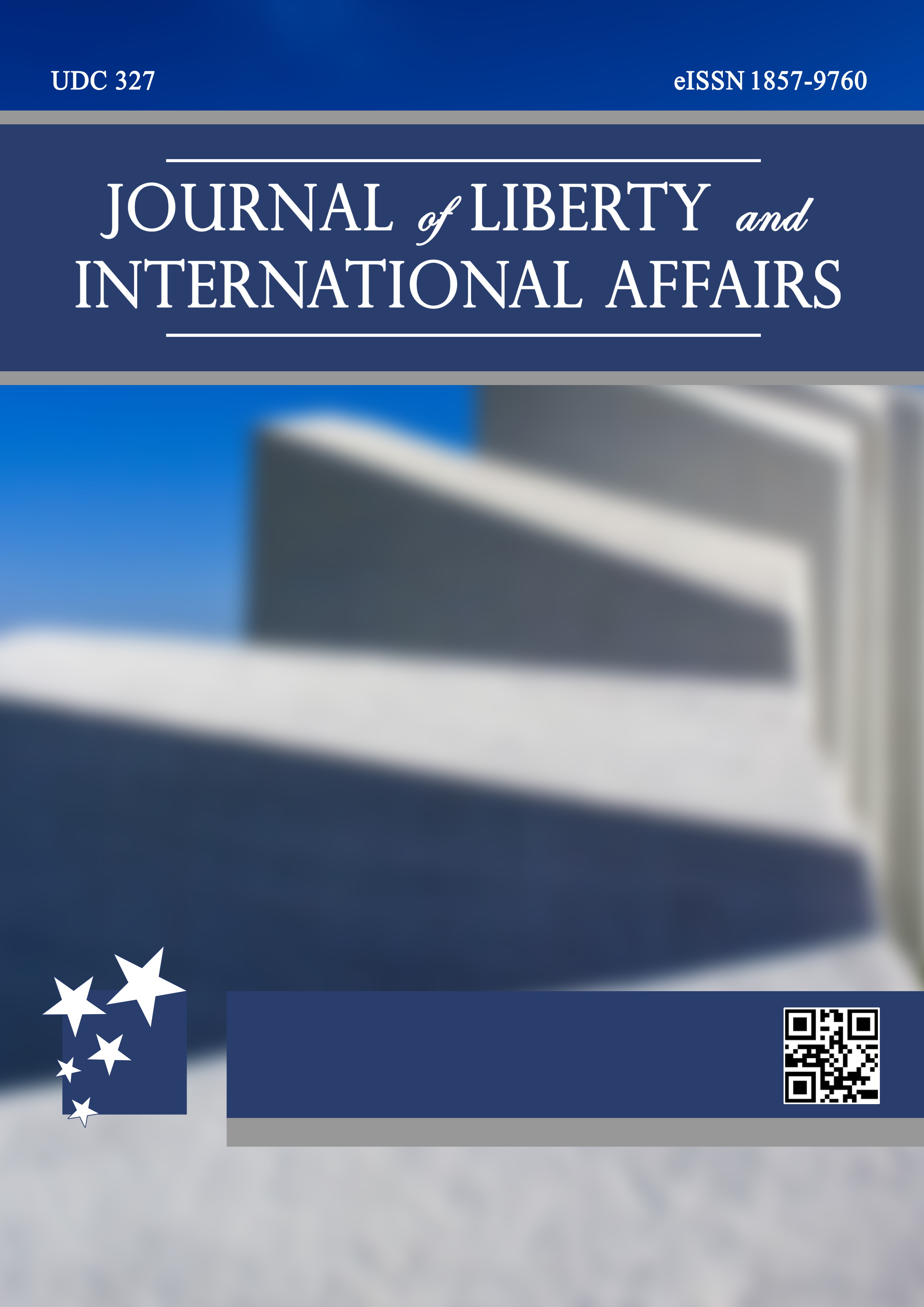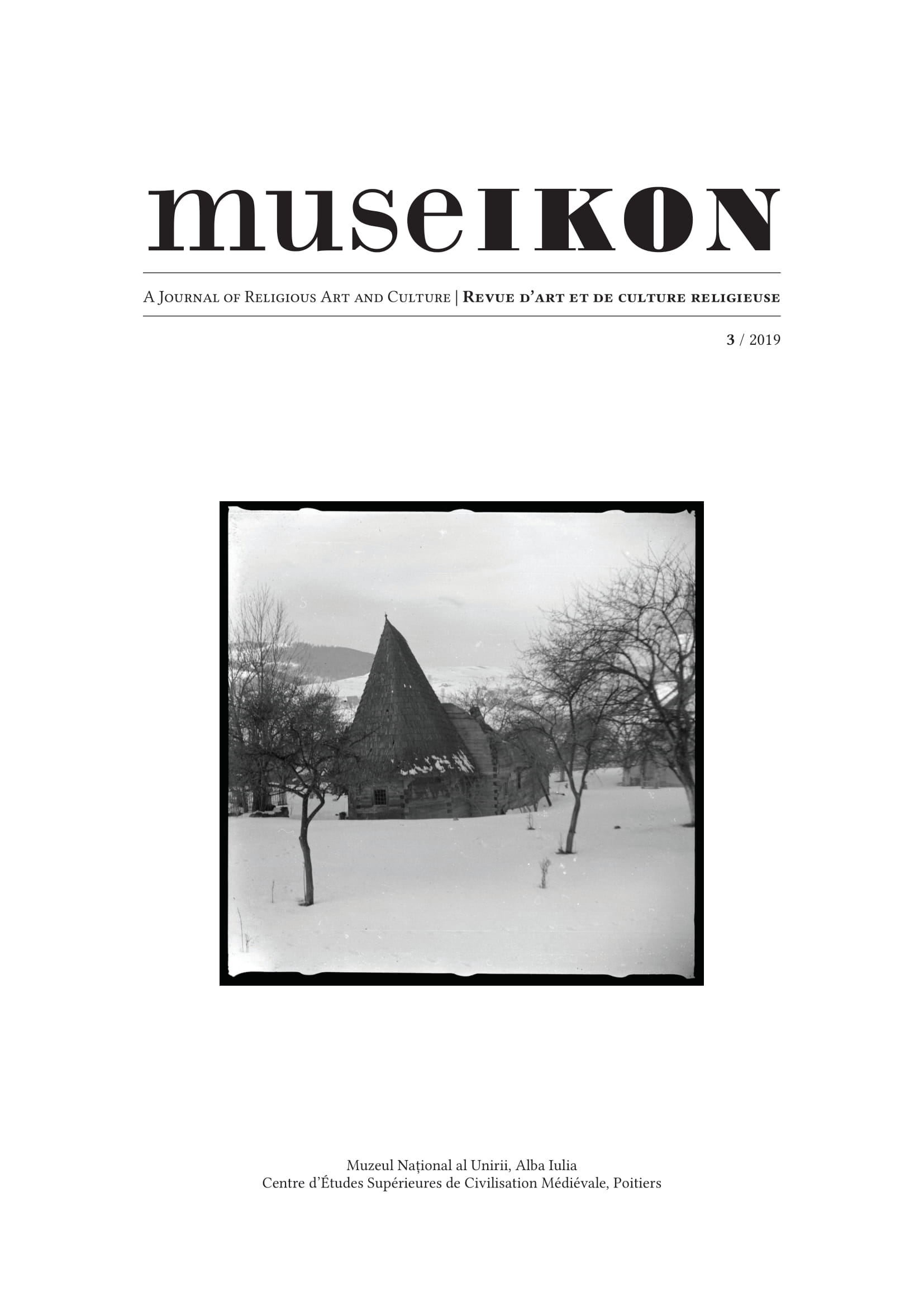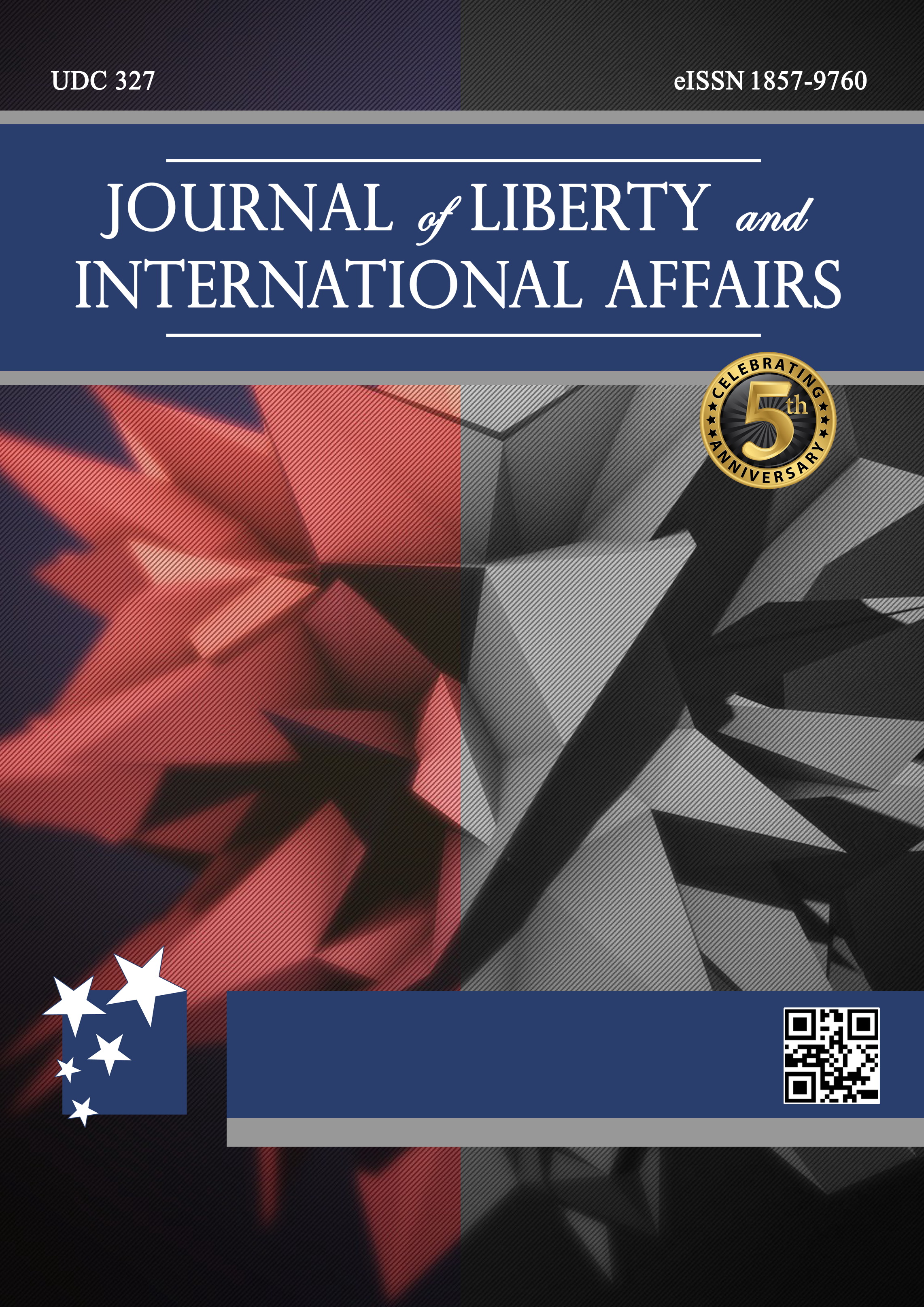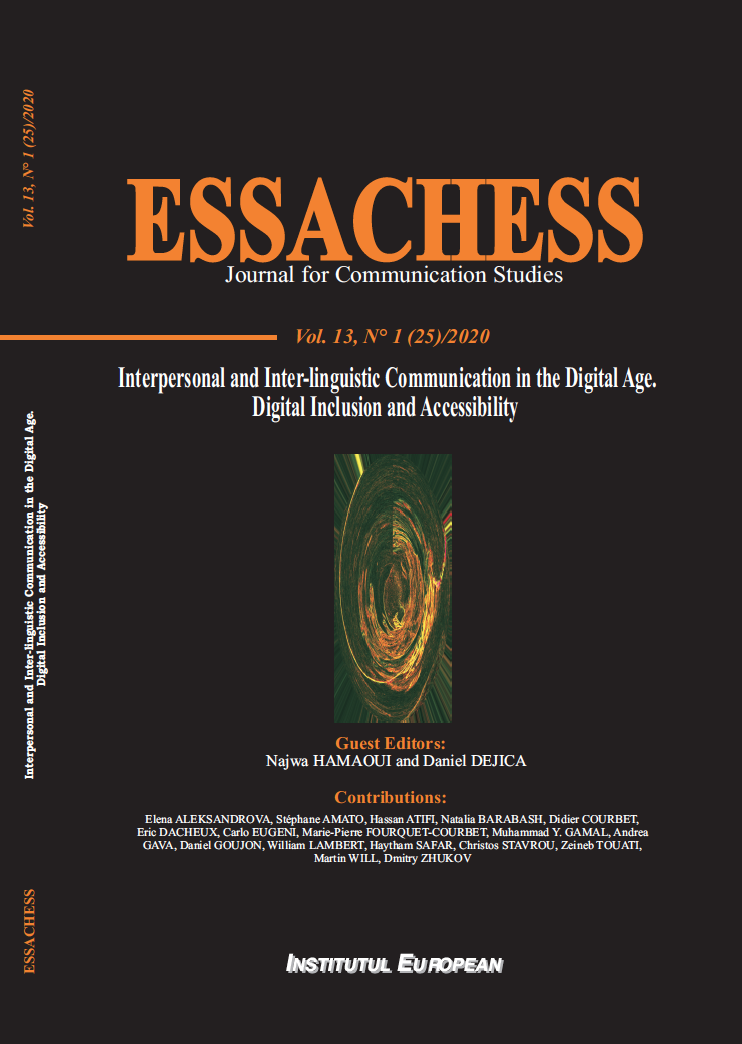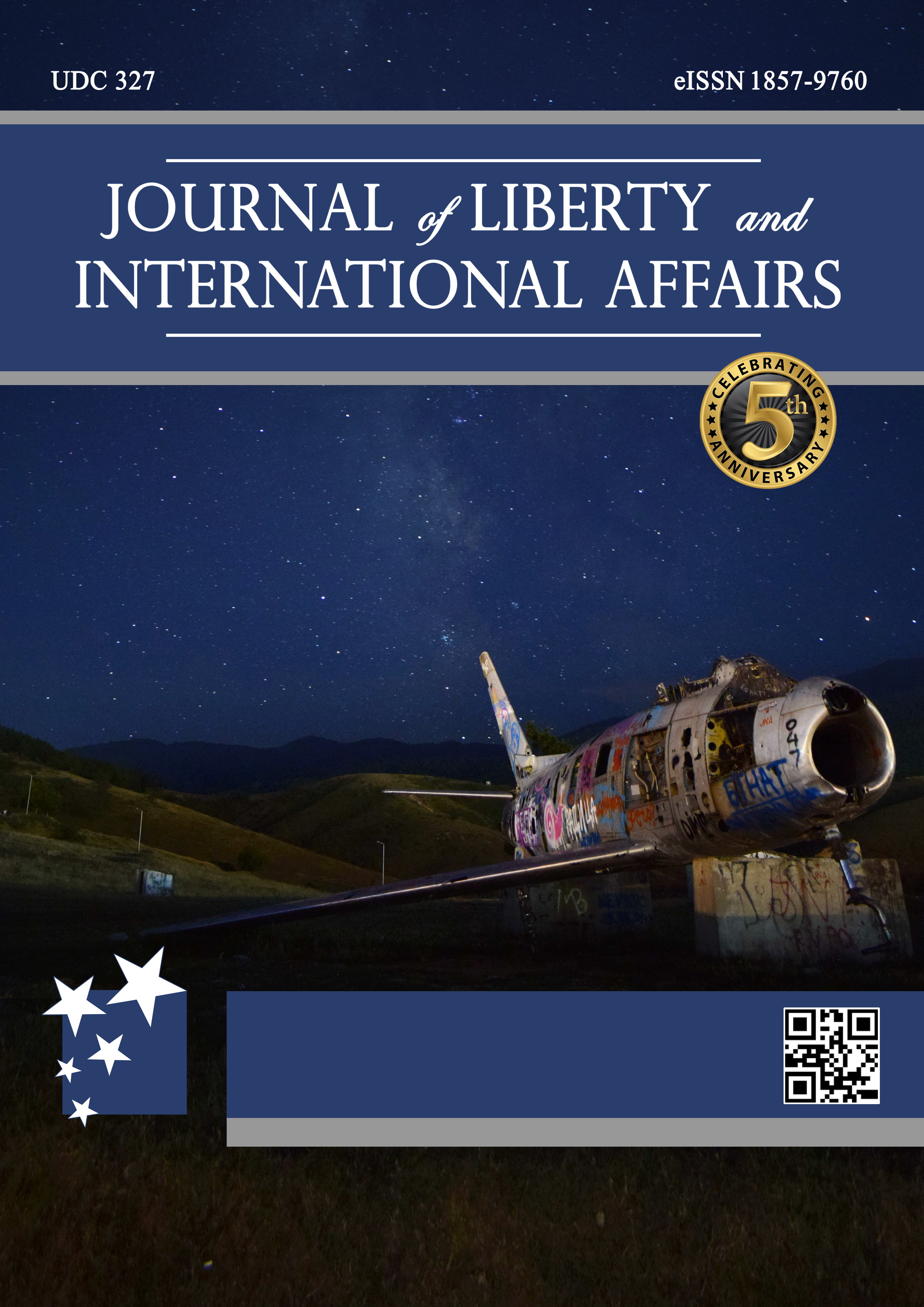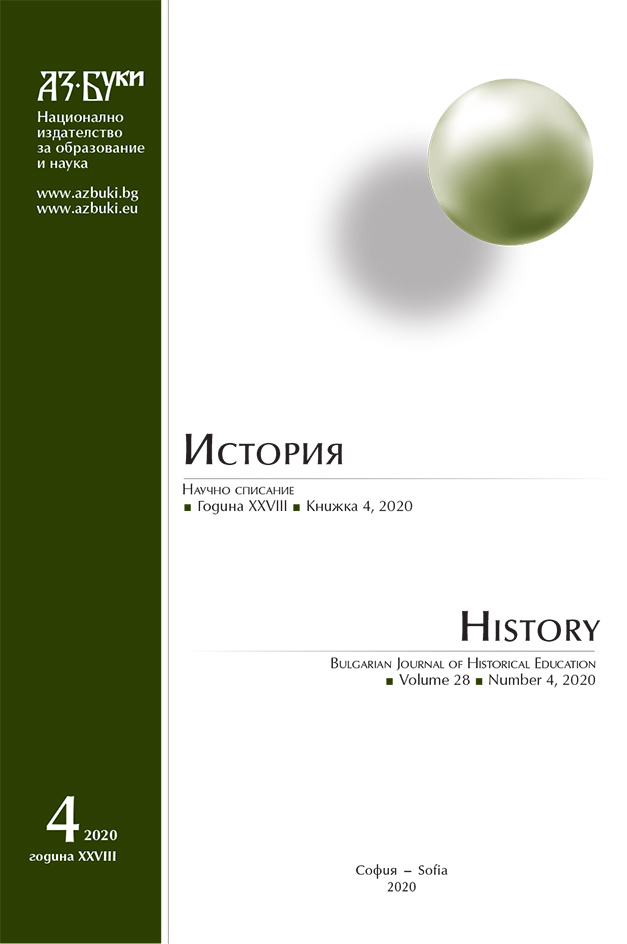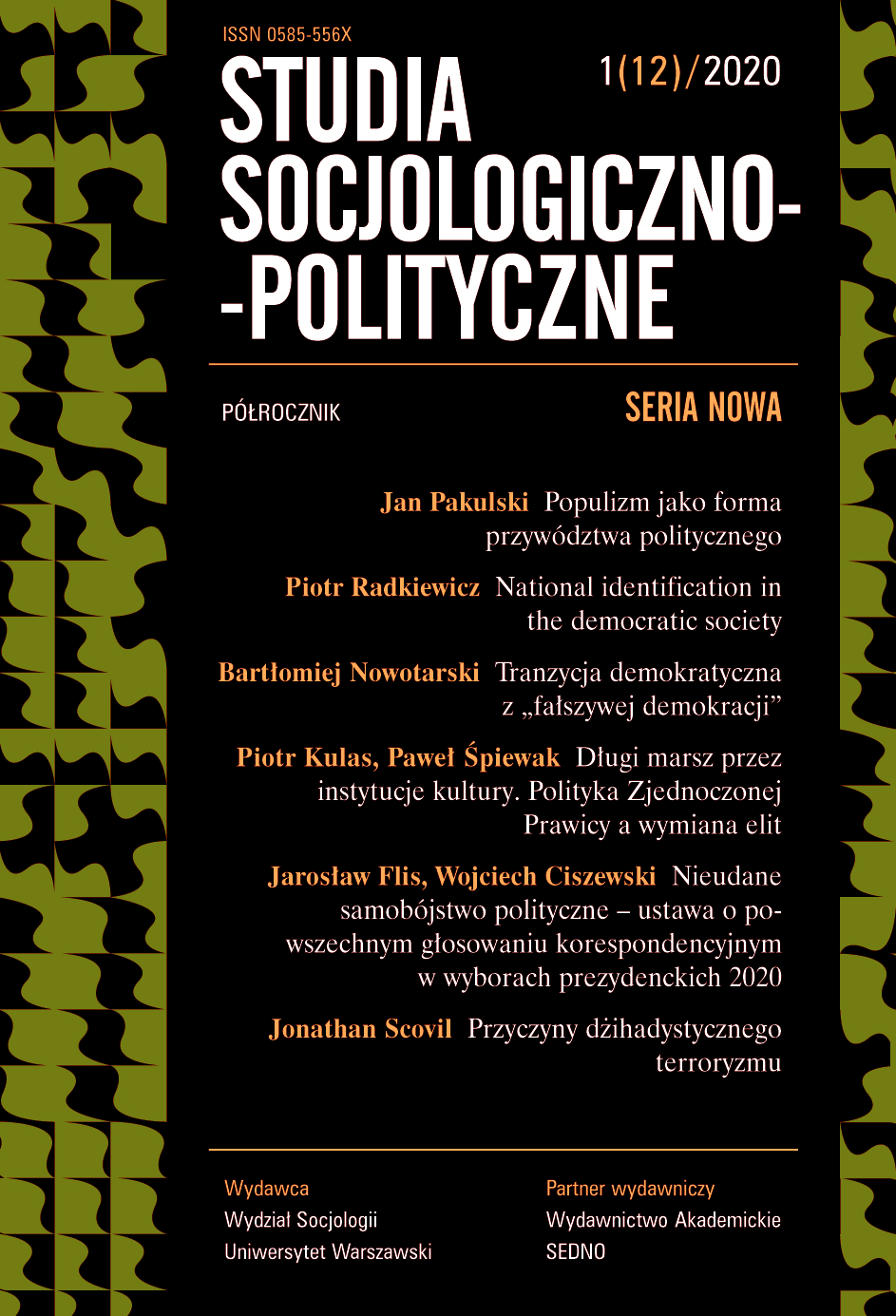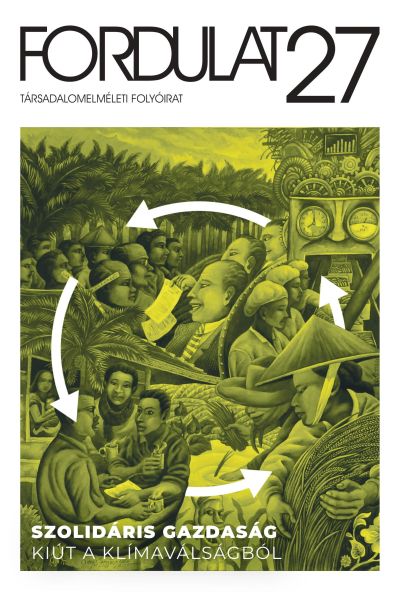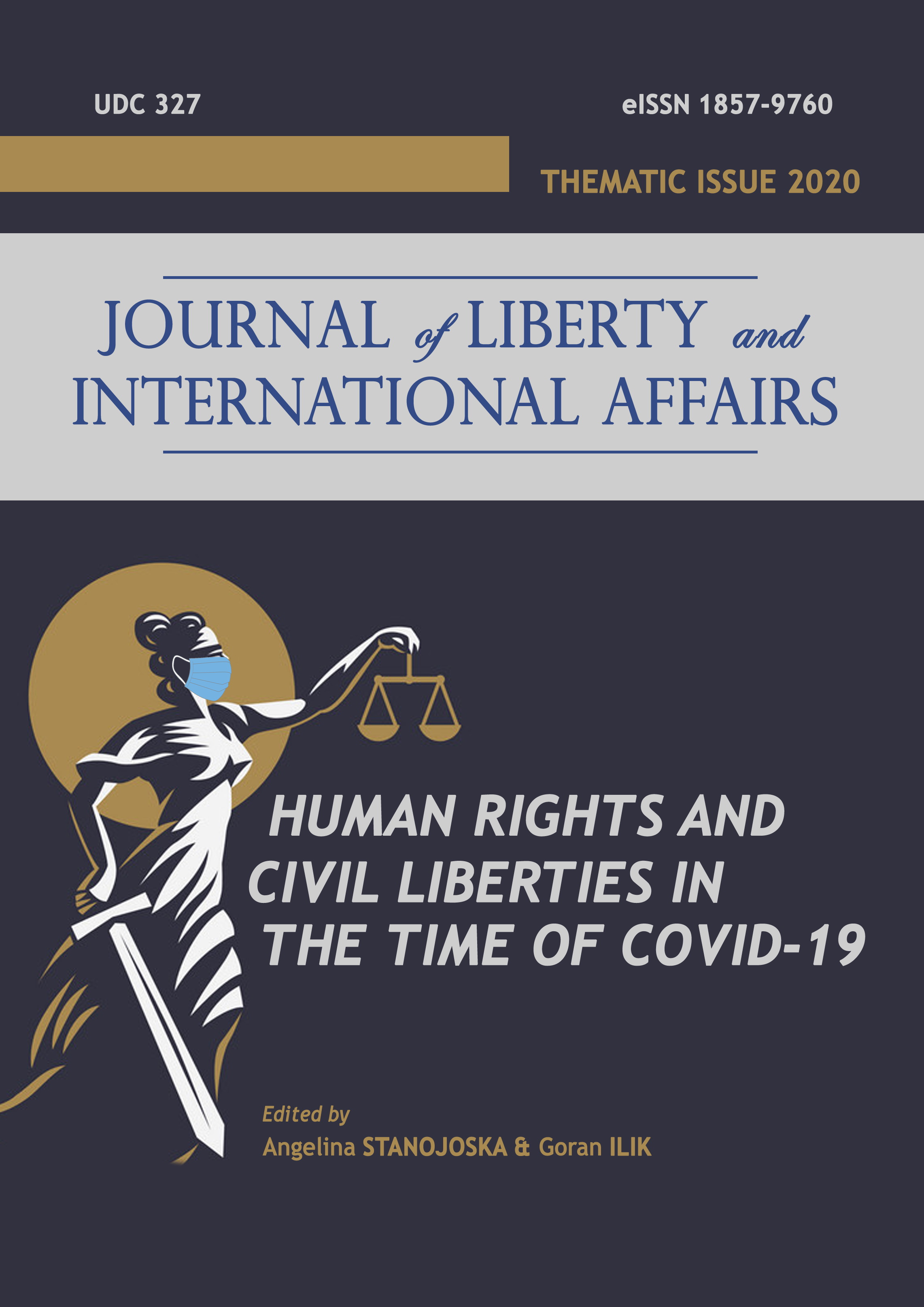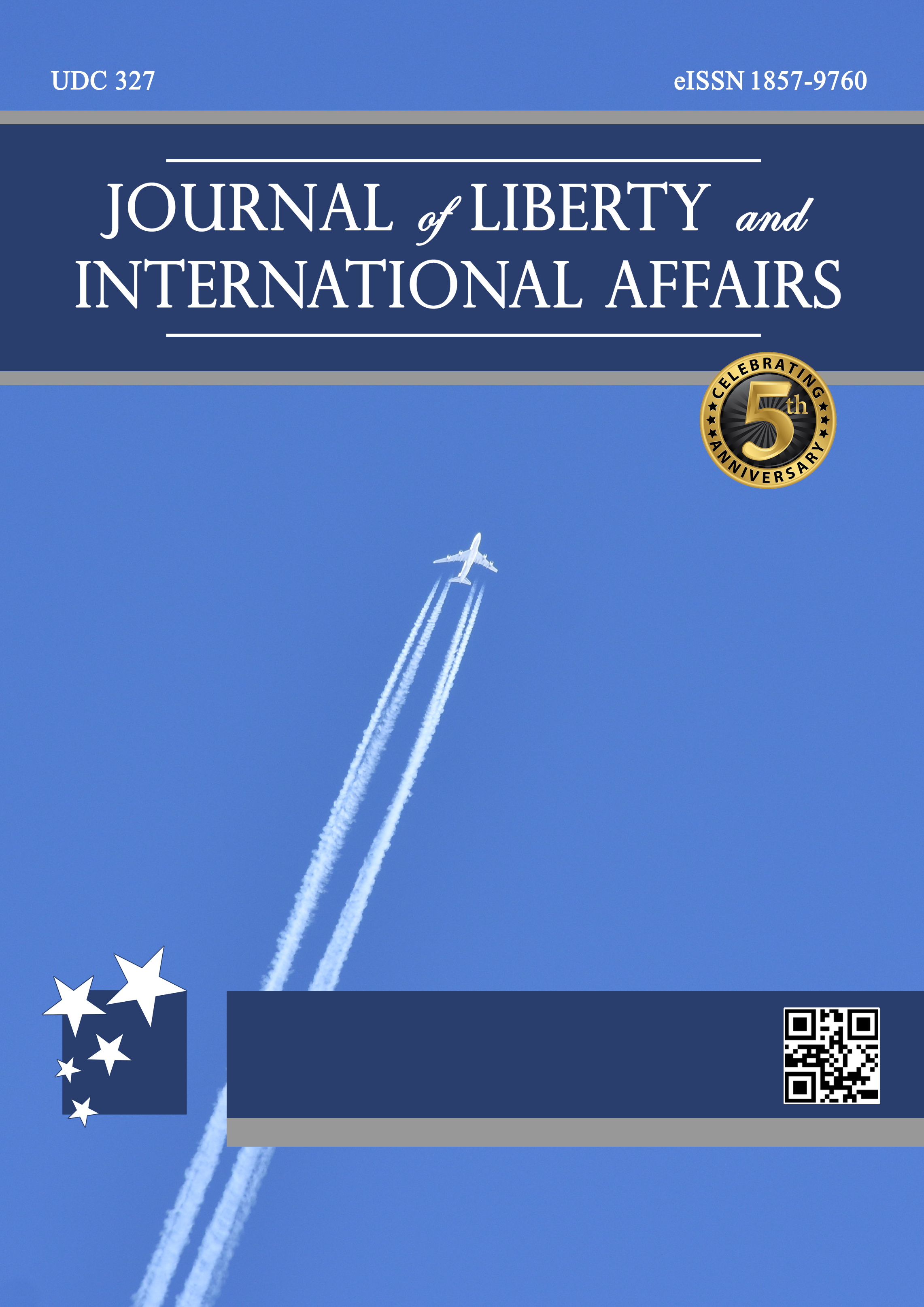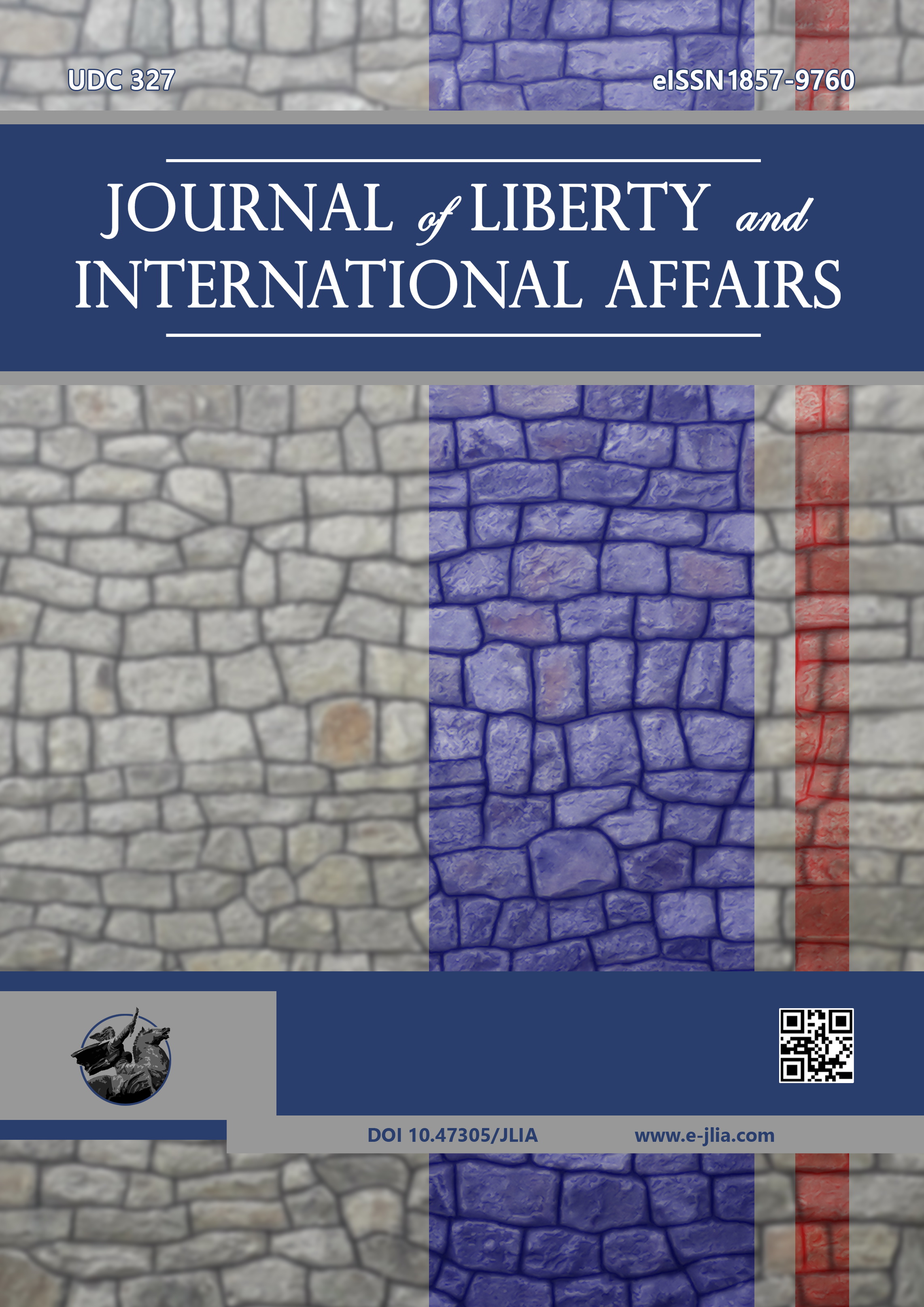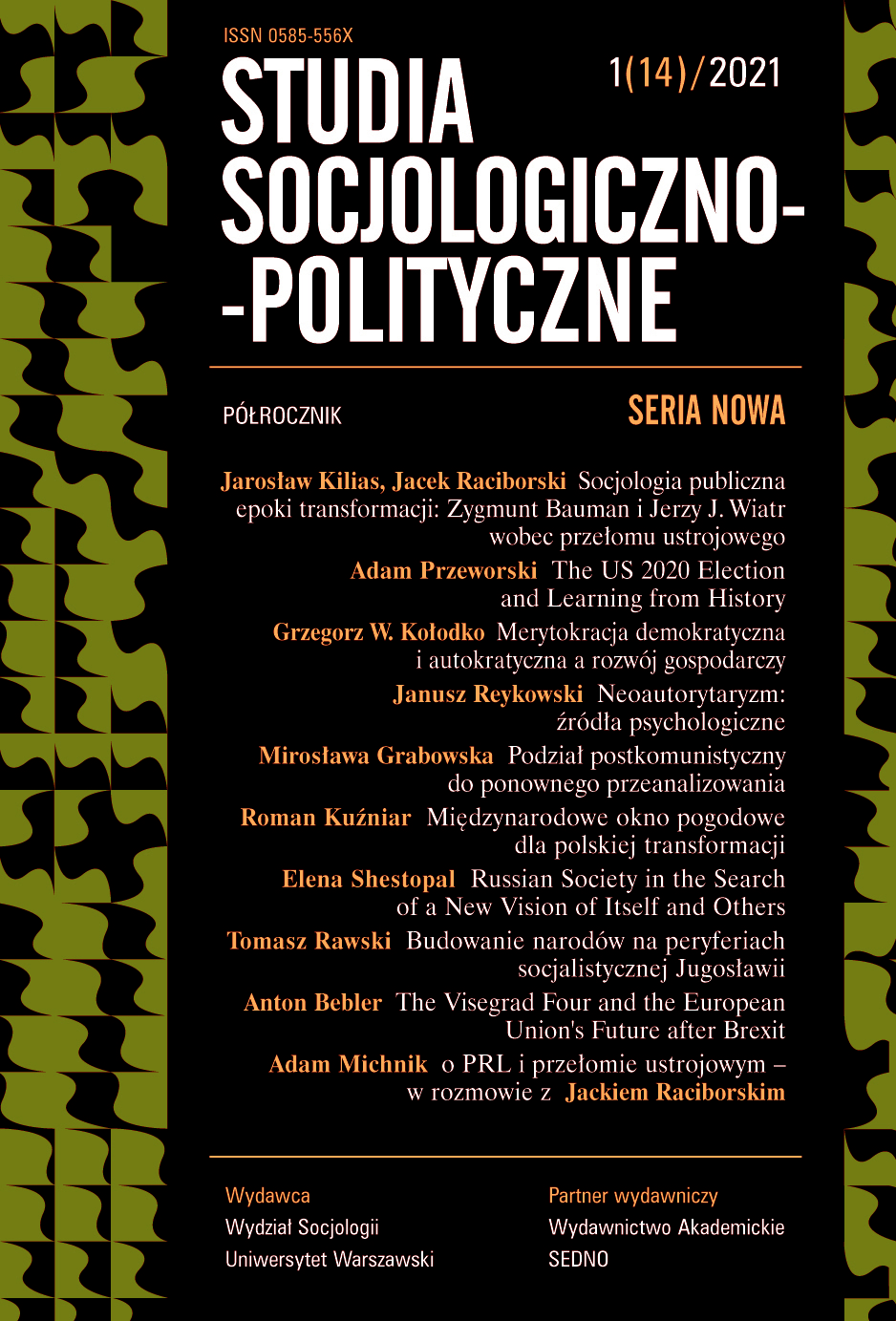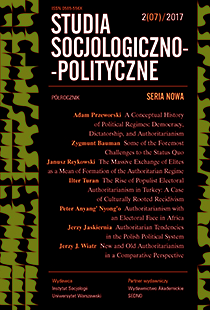
New and Old Authoritarianism in a Comparative Perspective
The third wave of democratization, unlike the first and the second, has not been followed by the reverse wave. However, in several countries (Russia, Belarus, Turkey, Hungary, Poland) democratically elected leaders interpret democracy narrowly, as the rule of majority only. Other conditions for democratic government (the rule of law, protecting human rights) are ignored. Such system of government differs from the authoritarian model (as defined by Juan J. Linz) and can best be called “new authoritarianism”. Poland is a special case because, while after the presidential and parliamentary elections of 2015 authoritarian practices became common, the hold on power by the ruling party (“Law and Justice”) is relatively weak. Future development of Polish politics depends mostly on the next parliamentary (2019) and presidential (2020) elections.
More...
